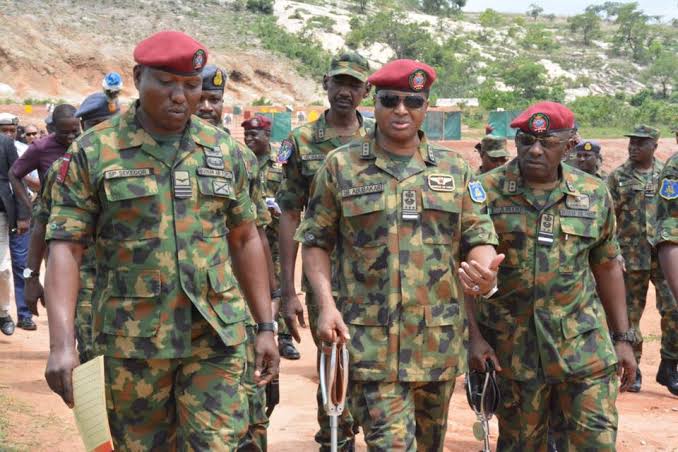There’s no way to fault the fact that President Bola Ahmed Tinubu needs a Minister of Defence capable of steering the Armed Forces and ensuring optimal combat readiness and professionalism, at a time the country is at crossroads with tension. It is integral towards achieving the administration’s desire to build a military with the capacity to respond to the security challenges in the country.
Nigeria is at a desperate point in its history, chsracterised by the fragility of the Economic Community of West African States (ECOWAS) – particularly the fallout from the coup in the Neighboring Niger Republic. The security situation has also mutated as the regional body prepares for a potential intervention to restore democratic rule. The action will further increase the burden on the Nigerian military, which is battling threats, ranging from terrorism, militancy, banditry and separatist violence.
The adverse impacts of these security threats are enormous including large-scale displacements of millions of Nigerians and deterioration in the local economy of affected communities. They also amplify the food insecurity crisis rocking many parts of Northern Nigeria— a major concern for the administration of President Tinubu’s ambition to improve food production and lower the cost of living.
As such it’s important for the defence sector to be headed by someone with the requisite competencies and the capacity to work towards the government’s National Security Goals. An All Progressive Congress 2023 governorship aspirant in Bauchi State, retired Air Marshal Sadique Abubakar fits the profile, considering his giant records as the Chief of the Nigerian Air Force. He is credited with repositioning the Air Force into one of the most modern and potent air power in sub-Saharan Africa.
At the time of Sadique’s appointment in 2015, the Air Force was struggling to conduct surveillance flights, combat missions and protect assets deployed for operations. However, at the end of his tenure in 2021, the Air Force had rapidly built up these capabilities including buying new equipment, reactivating several aircraft in storage and achieving over 80 per cent serviceability status of operable aircraft. The leadership of Sadique was instrumental in strengthening the capacity to conduct surveillance, transport and combat missions in support of ground forces in several hotspots of the country.
The new posture shaped the acquisitions of several aircraft such as the Super Mushshak trainer, the A-29 Tucano aircraft, the multirole JF-17 fighters, the MI-35M gunships, the A109E light helicopters, and M-171E transport helicopters alongside paving the way for the subsequent deliveries of other platforms including combat unmanned aerial vehicles commonly known as drones. During the period he served as the Air Chief, the Air Force was able to domesticate critical maintenance work on platforms like the C130H, the Alpha Jets and the L-39 aircraft. It enhanced the capacity of the local technical crews and saved the country’s important foreign exchange that would have been spent abroad.
The overhauling also extended to an increase in personnel numbers as well as investment in improving the quality of their training. These actions played an important role in the improvement of force projection and protection. Apart from the surge in the number of aircraft, the ground component of the service known as the regiment witnessed a significant boost and began participating more in counter-terrorism and internal security operations. The Air Force also built several forward operating bases including in extremely difficult places like Birnin Gwari, which was under siege from bandits and terrorists.
The Air Force under Sadique was also sensitive to Nigeria’s gender inclusiveness aspirations in line with Resolution 1325 on Women, Peace and Security. This involved deliberate policies to encourage women’s participation in critical arms including serving as combat pilots. Among the several new female pilots were the first female fixed-wing fighter pilot, Flying Officer Kafayat Sanni, as well as the first and second Nigerian Air Force combat helicopter pilots, Flying Officer Tolupe Arotile and Chinelo Nwokoye.
The appointment of Sadique to the security management team of President Tinubu will be a valuable addition that will sustain the gains in the Armed Forces. It will also enable the President to have access to critical policy advisory that ensures the military is able to deal with the security challenges and guarantee the defence of Nigeria.
Tajuddeen Ahmad Tijjani writes from Abuja

 Join Daily Trust WhatsApp Community For Quick Access To News and Happenings Around You.
Join Daily Trust WhatsApp Community For Quick Access To News and Happenings Around You.


